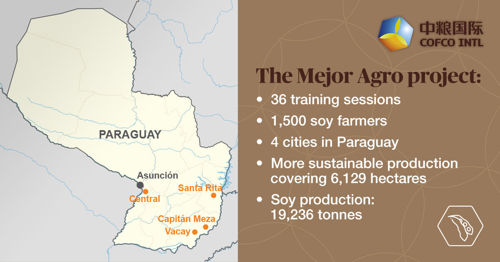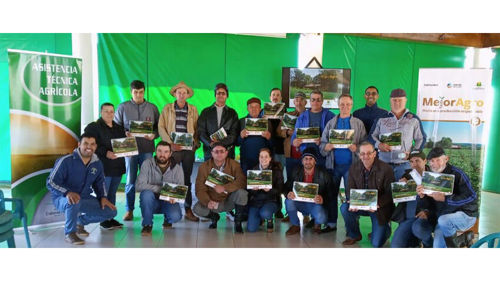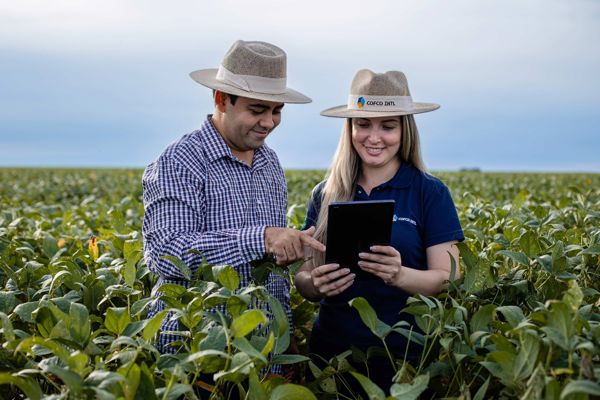
Paraguay soy farmers welcome support for sustainable production
In Paraguay’s south-east Atlantic Forest region, smallholder farmers begin their working day well before dawn but don’t finish sometimes for 16 hours. Between feeding animals and cultivating their crops, there is little time for anything else.
Despite these relentlessly long days, hundreds of soy producers in the region signed up to workshops on sustainable production, part of a wider project called Mejor Agro. Launched in 2017, this initiative planned to work with 100 farmers, but by October 2019, some 1,500 producers had attended training workshops.
Implemented by COFCO International, Solidaridad and the Colonias Unidas Cooperative, the project has received so much interest, that a second phase is now expected.

Tailor-made support
The project applies a digital tool - “Rural Horizon” - to evaluate farm management on more than 100 sustainability indicators. These indicators cover environmental, social, and economic issues, and are based on standards in the Round Table on Responsible Soy (RTRS) and Paraguayan legislation.
Based on initial farm-level assessment, a tailor-made improvement plan was generated for each participating farmer. The tool then enabled regular evaluation throughout the project to monitor progress and training needs.
Once gaps and training needs are identified, agronomists and field technicians visit the farmers to provide technical assistance at farm level. The project also produced training manuals and materials, such as videos and posters. So far, it delivered 36 workshops.
The workshops and technical support covered financial management, soil fertility and soybean diseases, for example, as well as environmental issues such as forest and water management. They also touched on health and safety aspects including safe handling of agrochemicals, the use of protective equipment and workers’ rights.
“This project has made soy production more sustainable,” says Alma Acosta, programme manager of Solidaridad Paraguay. “It is incredibly satisfying to see how much progress has been made by individual farmers.”
Measurable results
Progress was measured clearly, with evaluations earning grades of one to four. At the beginning of the project, for example, about 85 percent of the farmers began on Level Two. But after two years, most had made notable progress.
“Many of the farmers had limited access to this information beforehand,” says Alma. “After the training workshops and technical visits, most had jumped to Levels Three and Four.”

Financial management made the biggest progress. At the beginning of the project, 52 percent of the farmers were graded Level Two for how they went about their business finance, but - after two years - some 72 percent were on Level 4.
Another evident change is that farmers now use and manage their agrochemicals more efficiently and more safely.
The Mejor Agro project is receiving international recognition. The United Nations’ Global Compact (UNGC), a voluntary pact encouraging businesses to adopt sustainable and socially responsible practices, invited Mejor Agro to present the project at its regional summit in Mexico this December. UNGC noted the project’s use of digital technology, real-time analysis of farming practices, and continuous sustainability improvements.
